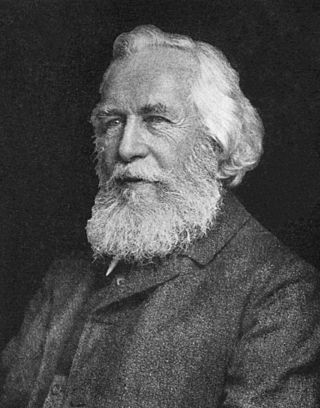
Ernst Heinrich Philipp August Haeckel was a German zoologist, naturalist, eugenicist, philosopher, physician, professor, marine biologist and artist. He discovered, described and named thousands of new species, mapped a genealogical tree relating all life forms and coined many terms in biology, including ecology, phylum, phylogeny, and Protista. Haeckel promoted and popularised Charles Darwin's work in Germany and developed the influential but no longer widely held recapitulation theory claiming that an individual organism's biological development, or ontogeny, parallels and summarises its species' evolutionary development, or phylogeny.

Ernst Jünger was a German author, highly decorated soldier, philosopher, and entomologist who became publicly known for his World War I memoir Storm of Steel.
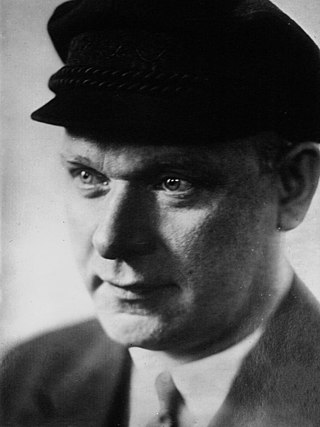
Ernst Johannes Fritz Thälmann was a German communist politician and leader of the Communist Party of Germany (KPD) from 1925 to 1933.

The Livonian Order was an autonomous branch of the Teutonic Order, formed in 1237. From 1435 to 1561 it was a member of the Livonian Confederation.

Friedrich Wilhelm Ernst Busch was a German singer and actor.
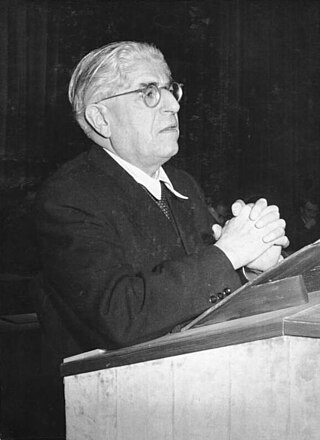
Ernst Simon Bloch was a German Marxist philosopher. Bloch was influenced by Georg Wilhelm Friedrich Hegel and Karl Marx, as well as by apocalyptic and religious thinkers such as Thomas Müntzer, Paracelsus, and Jacob Böhme. He established friendships with György Lukács, Bertolt Brecht, Kurt Weill, Walter Benjamin, and Theodor W. Adorno. Bloch's work focuses on an optimistic teleology of the history of mankind.

Ernst Fuchs was an Austrian painter, draftsman, printmaker, sculptor, architect, stage designer, composer, poet, and one of the founders of the Vienna School of Fantastic Realism. In 1972, he acquired the derelict Otto Wagner Villa in Hütteldorf, which he restored and transformed. The villa was inaugurated as the Ernst Fuchs Museum in 1988.

Ernst Johann Otto Hartert was a widely published German ornithologist.

Ernst Carl Julius Albrecht was a German politician of the Christian Democratic Union and a former high-ranking European civil servant. He was one of the first European civil servants appointed in 1958 and served as Director-General of the Directorate-General for Competition from 1967 to 1970. He served as Minister President of the state of Lower Saxony from 1976 to 1990. He was the father of the politician Ursula von der Leyen, the President of the European Commission.

Ernst Ludwig Kirchner was a German expressionist painter and printmaker and one of the founders of the artists group Die Brücke or "The Bridge", a key group leading to the foundation of Expressionism in 20th-century art. He volunteered for army service in the First World War, but soon suffered a breakdown and was discharged. His work was branded as "degenerate" by the Nazis in 1933, and in 1937 more than 600 of his works were sold or destroyed.
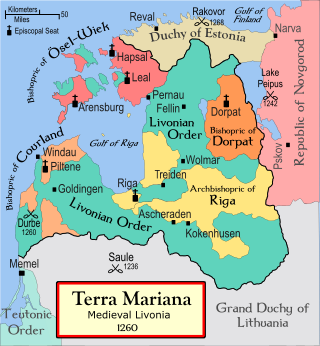
The Bishopric of Ösel–Wiek was a Roman Catholic diocese and a semi-independent prince-bishopric — part of Terra Mariana in the Holy Roman Empire. The bishopric covered what are now Saare, Hiiu, Lääne counties and the western part of Pärnu county of Estonia.
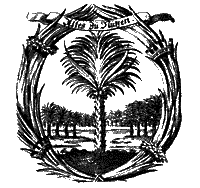
The Fruitbearing Society was a German literary society founded in 1617 in Weimar by German scholars and nobility. Its aim was to standardize vernacular German and promote it as both a scholarly and literary language, after the pattern of the Accademia della Crusca in Florence and similar groups already thriving in Italy, followed in later years also in France (1635) and Britain.

Klaus Ernst is a German politician and was a leading member of the Labour and Social Justice Party, later The Left and switched to BSW in October 2023.
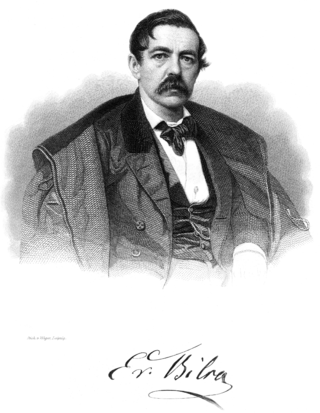
Ernst von Bibra was a German Naturalist and author. Ernst was a botanist, zoologist, metallurgist, chemist, geographer, travel writer, novelist, duellist, art collector and trailblazer in ethnopsychopharmacology.

Boris Meissner was a German lawyer and social scientist, specializing in Soviet studies, international law and Eastern European history and politics.

Ernst-Wolfgang Böckenförde was a German legal scholar and a justice on Germany's Federal Constitutional Court. He was a professor at the University of Freiburg and the author of more than 20 books and 80 articles dealing with legal and constitutional theory, as well as political theory, political philosophy and Catholic political thought. Böckenförde was considered a member of the Ritter School.
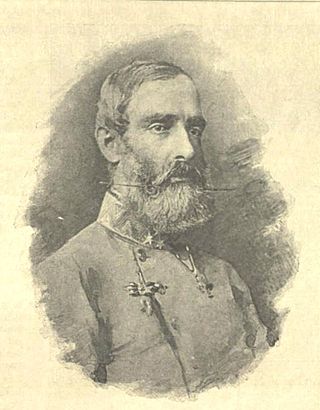
Archduke Ernst of Austria, Archduke of Austria, Prince Royal of Hungary and Bohemia was a member of the House of Habsburg-Lorraine.
Hermann of Buxhoeveden or Bekeshoevede (1230–1285) was a medieval clergyman. He was consecrated bishop of Ösel–Wiek on 20 August 1262 in Lübeck and remained in that post until his death. He was a member of the Buxhoeveden family, as was a later holder of the same bishopric, Reinhold von Buxhoeveden.
Landmeister of Prussia was a high office in the Teutonic Order. The Landmeister administered the land of Prussia of the Teutonic Order. It was in existence as a separate office from 1230 to 1309, later being held in union with the office of Grand Master until 1525.
The Lindauer Psychotherapiewochen (LP) are specialist conferences primarily intended as further training for doctors, psychologists, and child and youth psychotherapists, especially in the field of psychodynamic psychotherapy. These conferences span one-week and have been held annually in April, in Lindau, since 1950. Since 1967, organization of the conference has been run by the Vereinigung für psychotherapeutische Fort- und Weiterbildung.
















